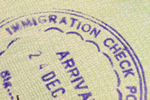Expats in UAE urge to check their tax residency status back home

Expats in UAE urge to check their tax residency status back home
One of the major attractions for expats considering relocation to the UAE is its fame as a tax-free jurisdiction. The mere thought of earning far more than you did in the home country and keeping all of it is exciting enough in itself, but shouldn’t be allowed to get in the way of checking your income tax liability in your country of origin.
Expats who have earnings of any kind in their home country, whether from savings interest, royalties, rental income, dividend payments or even capital growth relating to property or stocks are still likely to attract the eagle eyes of tax authorities. The vast majority of world countries’ taxmen are determined to continue taxing expats, no matter how long they’ve been away. Keeping any holdings in your home country whilst you’re resident overseas can result in your being designated as tax-resident.
Worse still, most countries’ tax laws change from year to year, and keeping up with changes which might affect your tax status can be time-consuming and very, very tedious. A good example which recently hit the news is the plight of South African expats attempting to cope with draconian new tax laws which state expats are likely to lose their exemption from paying tax on their earnings overseas. If the many protests have no effect, hapless South Africans working abroad will be levied up to 45 per cent tax on their overseas earnings.
Another ongoing example is the USA’s hated tax law which demands income tax on expats’ worldwide earnings and has disrupted the entire globe’s banking systems by introducing FATCA in order to trace every single US expat earning a few dollars over the limit by working in his or her country of current residence. Of course, every country has its own tax rules, usually expressed in jargon-spotted language intended to confuse even the intelligent, but it’s up to expats to check and double check their home country’s laws in order to avoid a demand from its tax office. One easy indication of non-tax residency is the 183-day rule, which disallows tax residency if 183 days or more are spent overseas. If you’re travelling back and forth regularly on business or take regular long holidays with your family back home, you’ve got problems.
Related Stories:
- Is Kuwaitization the unintended result of the oil price crash? - July 20, 2020
- Expats in Malaysia still banned from overseas travel - July 17, 2020
- HSBC Asia to cut back on internal expat relocations - July 16, 2020
- Tips on integrating for newly-arrived expats - July 15, 2020
Latest News:
- Tips on a trouble-free relocation as an expat overseas - July 20, 2020
- Expats find peace in the covid-19 refuge of Dahab town - July 20, 2020
- Is Kuwaitization the unintended result of the oil price crash? - July 20, 2020
- Expats unhappy abut changes to Korean points-based visa system - July 17, 2020
- Chiang Mai and Bangkok no longer bargain locations for expats - July 17, 2020
- Expats in Malaysia still banned from overseas travel - July 17, 2020
- Vietnam welcomes expats to its safe, affordable lifestyle - July 16, 2020
- Asian tiger economies reach out to expats in Hong Kong - July 16, 2020
- HSBC Asia to cut back on internal expat relocations - July 16, 2020
- Tips on integrating for newly-arrived expats - July 15, 2020


